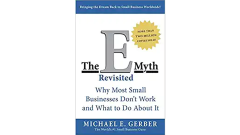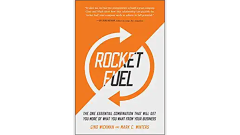In his eighth decade, Benjamin Franklin penned a supplement to his will to give some of his wealth back to the country he helped establish. It specified that a portion of his estate must go to enterprising youths seeking to start a business or toward city improvements in Boston and Philadelphia.
Thanks to his fascination with calculating the future value of money and compound interest, Franklin was confident that the plan would span two centuries. And so it proved — Franklin’s 1790

As immense as Franklin’s benevolence was, he left us all a portion of his intellectual wealth when he declared, “An investment in knowledge pays the best interest.” It’s a maxim that has served me well over my years as an advisor. A former schoolteacher when I entered the business over 20 years ago, I diverged from the generic “dialing for dollars” path to advancement and set out, instead, to learn from entrepreneurs and leaders accessible to me in books.
In time, six titles in particular helped me develop a method I have come to call the BASIS (build, attract, systematize, invest, scale) Method. These books have paid me interest many times over in building my business and bettering my life. I hope they do the same for you.











